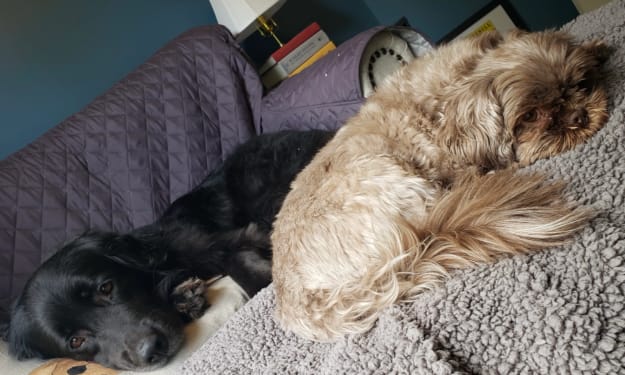
The majority of us have been put through the ringer that is job hunting at any given time of our lives and most would describe the experience as nothing short of grueling and soul sucking. I would know, I've been playing this game since my undergrad program. I've also noticed interesting patterns when it comes to applying practices and habits of those suffering from spectrum anxiety and depressive disorders that should be addressed, but probably haven't. Let's look into some of them.
There is no shortage of websites, seminars, networking events, classes, and articles that specifically focus on building a killer resume, writing an eye-catching cover letter, and blowing an interview out of the ball park. We even have access to companies that specifically write your resume and your LinkedIn profiles for you. We have career specialists that guide and coach through the entire hiring process.
So one would think with all these resources available, everyone should be able gain decent employment.
Here's where I stop you.
Most of those websites and resources are written for the general population. And yes, we are all a part of the general population.
Those same websites are also written for those at baseline level. What do I mean by that?
Consider the average resume assistant website with helpful hints and tips to building a perfect resume. Something like; Your resume should highlight your accomplishments and supplement the skills you've listed. But that tip doesn't consider the anxious person who cannot see past the their tunnel vision of perceived judgement from outside forces and becomes paralyzed because they can't think of any positive attributes hiring managers might like. It does not consider the depressive who doesn't believe they have any useful or worthy skills due to the constant bombardment of vicious intrusive thoughts constantly pointing accusatory fingers at their worthlessness.
The same can be said for the interview process which, to many sufferers of these conditions, becomes nothing short of nightmarish. Tell us about yourself. How do you work under pressure? When was a time you had to resolve a conflict? These questions are common, rational, and normal to the average person. But they are hell on earth for the growing percentage of the population suffering from clinical anxiety and depression.
The better solution would be to try to nip these conditions in the bud before they grow into things we cannot control. Proper mental health care and therapy being the best and most logical route.
But that is also a bit of wishful thinking.
We as a society have to accept some realities that might not make sense to some. We have to accept that there are more individuals suffering from anxiety and depressive disorders than meets the eye. We have to accept that those individuals may not function with the same ease of access of life as others. We have to accept that what some see as a basic questionnaire of skills, others perceive as a ring of fire.
They, however, are not weak.
They are survivors. I would even go so far as to say that they are some of the strongest among us. They have to contend with their sometimes debilitating illnesses while still walking through life. I can't think of anything more extraordinary.
In closing, here are a few tip and tricks for facing the challenges of mental illness while job hunting.
- Limit yourself to only a maximum of two hours for job hunting and applying.
- Spend some time writing out your skills and accomplishments and possibly asking trusted family and friends to help you.
- If possible, seek advice from a career counselor and be honest about your situation.
- Take care of yourself, if that means putting your computer away because the hunt is overwhelming then do so.
- Have others look at your resume who will give you positive and gently constructive feedback.
- Prepare in advance the answers to questions you might be asked over the phone or during an interview in person. *This would be great practice with a friend or a career specialist.
- Remember that you are not abnormal for being anxious about job hunting. This process can be numbing for many people.
- While encouraging others in similar situations is great, put your own oxygen mask on first. The best way for you to help someone is if you are helped.
- A rejection of a position you thought you fit is not a personal rejection of your character (though I know it really feels like it). It means that the hiring manager is missing out on what YOU have to offer. Their loss, not yours.
- Stand up straight with your shoulders back.






Comments
There are no comments for this story
Be the first to respond and start the conversation.